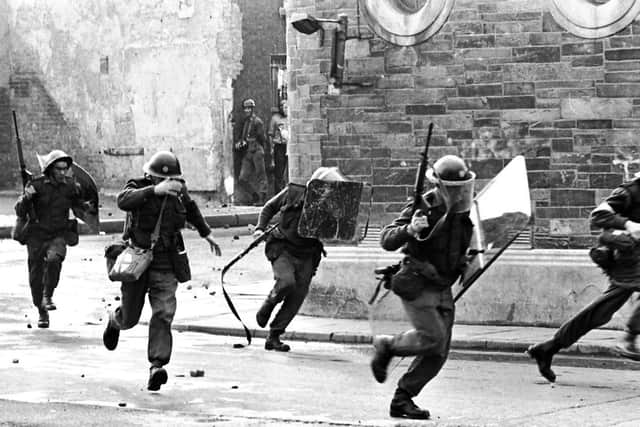Derry demo to oppose new legacy proposals
and live on Freeview channel 276
A new government bill involves immunity from prosecution for those who co-operate with investigations.
It also prevents future inquests and civil actions related to the Troubles.
Advertisement
Hide AdAdvertisement
Hide AdMany relatives who lost loved ones during the conflict are bitterly opposed to the contentious plans.


Under the NI Troubles (Legacy and Reconciliation) Bill, only inquests which have reached substantive hearing stage a year after the legislation will be allowed to continue while anyone with Troubles related convictions will not be eligible for immunity.
The ‘Bill of Shame’, as it’s been branded by a number of relatives’ groups, is due to have its second reading at Westminster on Tuesday, May 24.
To coincide with this, the Pat Finucane Centre, the Bloody Sunday Trust, Relatives for Justice, the Ballymurphy Massacre families and the Springhill/Westrock massacre families, will hold demonstrations in Derry and Belfast.
Advertisement
Hide AdAdvertisement
Hide AdBereaved relatives are asked to gather at Guildhall Square in Derry at 1pm on Tuesday afternoon and to bring photographs of their loved ones with them.
A spokesperson for the protest organisers said: “The Bill of Shame is unacceptable. There is no independence to these proposals, with a British Secretary of State able to intervene at every stage.
“The Bill will end any hope of effective or legally compliant investigations.
“It will usurp the criminal justice system and the rule of law.
“These proposals will deliver neither justice nor truth and certainly not reconciliation.”